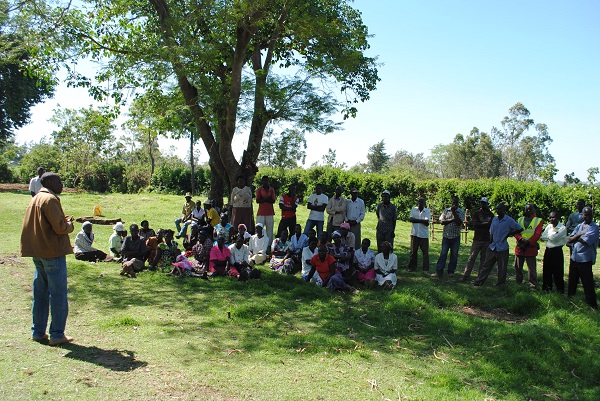Africa holds promise as far as social and economic development is concerned. As such, agribusiness is thus looked upon as it will play a major role in the realization of said development. This will also help facilitate policies and partnerships that will enable smallholder farmers as well as pastoralists not only participate but also benefit from the growth of the economy.
FAO Director-General José Graziano da Silva said that inclusivity is key to promote sustainable development in the African continent. He further added that African agribusinesses are expected to create a US $1 trillion market by 2030. However, Graziano da Silva was also quick to emphasize risks such rapid growth pose. This is especially the case if large-scale food processers and retailers manage to dominate the process.
Da Silva further stressed the integral role of poor rural families in the mitigation of food insecurity as well as the local markets. He thus insisted that they be considered whenever there are talks about creating conditions for agricultural entrepreneurs to grow and thrive in Africa.
However, therein lies the challenge of achieving this since most smallholders across Africa are usually not organized into cooperatives or other forms of association. These have been proven to help other smallholders in other places integrate into modern agri-food chains.
The Director General thus termed cooperatives and other associations as the only plausible way to ensure the provision of technical assistance, capacity building, financial resources and access to modern technologies for families. He further added that they also promote closer cooperation between farmers and research institutions. This, in turn, will help smaller farmers gain a voice in policy-making.
To help alleviate the situation, Graziano da Silva also called for an “urbanization of rural areas”. This, he says, is to better provide education, health, electricity, and internet access. Consequently, it will serve to help strengthen the links between small urban centers and their surrounding rural areas. FAO is currently working on boosting smallholder integration into modern value chains around Africa.
This is done in partnership with the Rabobank Foundation, an independent organization funded by Rabobank. The initiative aims to help small-scale farmers and cooperatives in developing countries become economically independent.
One of the new projects mapped out by the agreement include the use of microfinance to foster youth entrepreneurship in horticulture, beekeeping and raising small livestock in Tanzania. Another seeks to connect smallholder producer organizations in Ethiopia’s Oromia region with credit providers. A third project is reliant on Rabobank’s expertise for the purposes of rolling out a range of financial products tailored to the needs of rural young entrepreneur in Uganda.
The two partners will come together with a view to develop a learning platform to support using data for inclusive finance and food and ways to make information technology more useful to both smallholders and the institutions that lend to them.
Other possible areas of collaboration between FAO and Rabobank include work on reducing post-harvest losses in Africa’s grain supply chains, supporting investments in energy-smart foods, cocoa-based sustainable agroforestry in West Africa and expanding Africa’s “Great Green Wall”.
Africa’s urbanization makes an integrated approach with a strong focus on rural development even more critical, as there will be increased need to manage natural resources sustainably and to promote healthy diets even as people move to cities, where fast and processed foods tend to be more prevalent, Graziano da Silva said.








